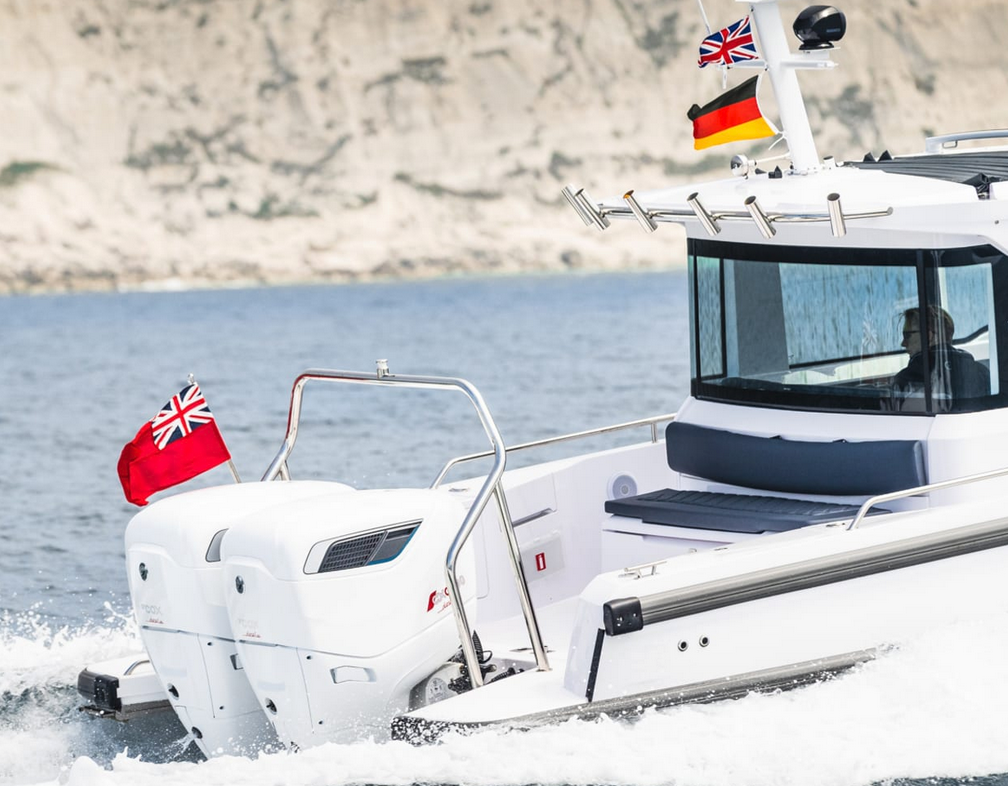Portsmouth International Port and Cox Marine to demo diesel-hydrogen outboard

British diesel outboard engineering company Cox Marine has joined the Shape UK consortium looking to transition Portsmouth International Port into the UK's first zero-emissions maritime hub.
As part of this project, Cox will be working with the University of Brighton to convert one of the company’s CXO300 diesel outboard engines to operate as a dual-fuel hydrogen engine and to demonstrate the engine operating in the port environment.
The conversion and demonstration form part of the wider Shipping, Hydrogen & Port Ecosystems UK (Shape UK) project, which aims to demonstrate an achievable modular green hydrogen generation system within Portsmouth International Port.
Maritime operations are paramount to the efficient movement of goods nationally and globally but are often high contributors of CO2 emissions and air pollutants. The adoption of decentralised energy systems offers the potential to support the necessary transition of ports and their operations to carbon net-zero operations.
The Shape project sets out to:
- Address the viability of a local hydrogen infrastructure through the installation and test of a modular hydrogen electrolyser.
- Demonstrate a use case for portside hydrogen through the hydrogen dual-fuel Cox outboard.
- Generate a digital twin of the port as a tool to determine the economic and environmental suitability of deploying H2 systems within key stakeholder ports.
- Assess the regulatory landscape around the generation and use of hydrogen in a port environment to determine where deployment can occur immediately and where regulations need to be addressed.
Portsmouth International Port is one of the sites of the new Solent Freeport and is committed to becoming the first carbon-neutral UK port by 2030, and the first zero-emission port by 2050.


